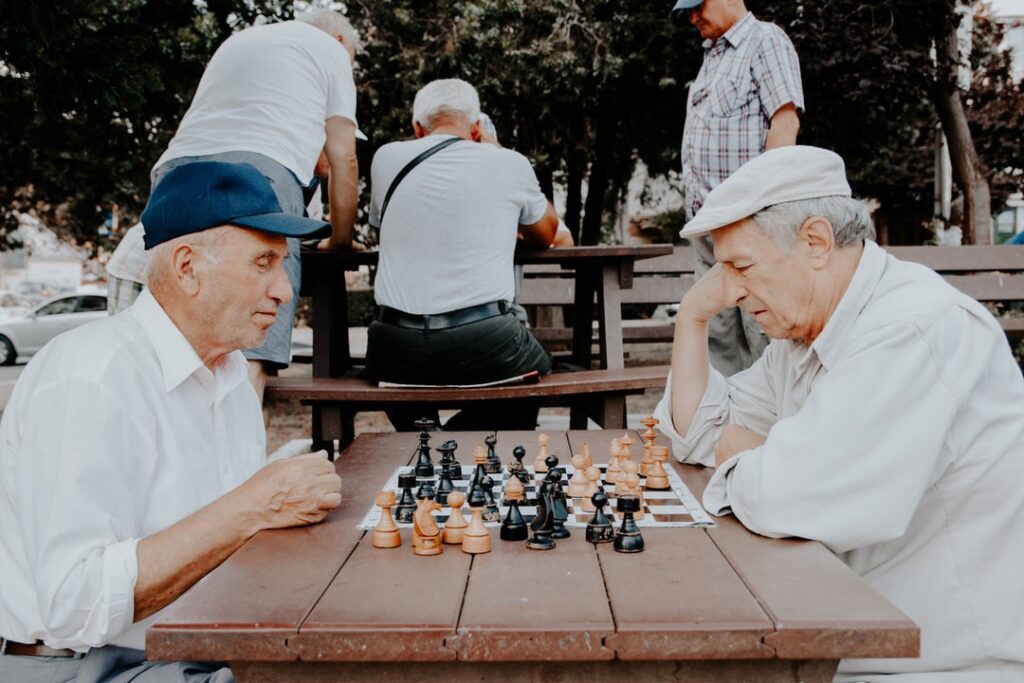The last decade has seen an astronomical rise in the popularity of brain training apps like Lumosity and Elevate, which are free to download and promise to make you sharper. Whilst there’s little doubt that playing such games regularly improves your ability at, well, playing those games, the jury is still out on whether they actually give cognitive function a boost.
In fact, experts suggest that sleep, socialising and exercise are far more effective tools in your arsenal if you’re looking to sharpen up your mind. But if you are keen to discover quick, fun ways to give your brain a workout, then fear not, there are still some great, scientifically backed activities out there which do the job; here are 5 alternatives to brain training apps which could make you feel sharper.
LEARN A LANGUAGE
Incredible things happen inside the brain when you learn a second (or third, fourth, or fifth language). In a 2014 article in the Guardian, it was reported that ‘’learning a foreign language can increase the size of your brain’’, with genuine growth in grey matter volume seen in bilingual students.
Even more interestingly, Knowable magazine reports that these changes occur even in those using computer based e-Learning to study a language, with brain connectivity enhanced, white matter in the right hemisphere increased, and grey matter also bigger in volume. Wow!
So, if you’re looking for an interactive way to give your brain a workout on your smartphone, instead of those brain training apps we mentioned earlier, why not try a language learning app instead? Some of the most popular out there include Duolingo, Drops, Babbel and Memrise, which use advanced gamification technology to help learners acquire new vocabulary and basic grammatical structures whilst at the same time having fun.
Expand your vocabulary and your gray matter? Yes please. Or should we say, ‘’Да, пожалуйста’’?

PLAY VIDEO GAMES
Games such as Tetris or Space Invaders are loved by everyone, but they are also good for the development of various cognitive skills, such as perception, agility, and reasoning. In fact, the former has been credited with some truly surprising discoveries regarding mental health and cognitive function.
In 2018, it was reported that Tetris could even help drug addicts resist cravings; ‘’The game engages both the brain’s visual and spatial systems — which are used while indulging in a craving fantasy — and keeps these parts of the brain distracted long enough to allow the cravings to subside’’. What’s more, the findings, published in an article in the Atlantic, reported that ‘’researchers have found evidence that playing Tetris may aid cognitive development’’.
In fact, the ‘game’ being played doesn’t have to be Tetris, specifically, but rather any game which is visually arresting and provides an element of challenge. Candy Crush, then? Food for thought, indeed…
CROSSWORDS & SUDOKU
Of course, you can give your brain a few laps of the metaphorical gym even if you aren’t using smartphones or computers. Crosswords and sudoku, in particular, have long been believed to improve memory and cognitive function.
Though the evidence isn’t actually conclusive on how much they help the brain, it should be noted that the Fisher Center for Alzheimer’s Research Foundation encourages regular crossword puzzles as a means of protecting the brain, citing a study done by the University of California which found that ‘’the more often someone engaged in mentally stimulating activities, the less buildup of beta-amyloid they were likely to have in the brain’’. That beta-amyloid is a toxic protein which can build up in the brain and cause issues with memory. Fascinating stuff.
What’s more, a study in the Journal of Geriatric Psychiatry found that increased playing of sudoku (and also crosswords) led to better brain function in the over 50s. Pass us a pen, please.
CHESS
Speaking of an activity which doesn’t require you to stare into a screen to reap its benefits, experts of the brain and players of chess alike have been extolling the virtues of the famous board game for centuries, suggesting it is one of the very best natural ways to make you feel sharper out there.
Studies have consistently posited that routinely playing the world’s most famous board game improves memory, problem solving and even reading skills (in children), develops planning and foresight, and most comprehensively, has been said to significantly increase a player’s IQ after four months of playing.
Even if these studies are yet to be conclusive on chess’ ability to give the brain a workout, the game is fun and also incredibly sociable, should you choose to join a chess club to get your kicks. And you know what they say about being sociable? Yep, it’s amazing for the brain.

A BRAIN TRAINING CENTRE
Finally, something a little different. Did you know that there are actual brain training centres, whose aim is to develop cognitive function in their students and clients, in a clinically proven way far beyond the reaches of those apps we keep mentioning?
But how is this different to traditional teaching? Well, brain training centres, which have grown hugely in popularity in recent years, employ educational psychologists and neuroscientists alongside teachers in order to develop cognitive learning programs which use play, implicit learning, associative learning, habituation and sensitisation, emotional learning and experiential learning, with a particular focus placed of metacognitive strategies.
Such centres specialise in those living with learning difficulties, using both traditional neurofeedback methods combined with more modern metacognitive neurofeedback to help individual students work on their unique learning needs. Lovely stuff.
Recent scientific studies have revealed the link between stress and a reduced cognitive function. To feel sharper, one of the best things you can do is get your stress levels under control. Check out these 5 free stress relief strategies for more on how to do just that.
*This article is not intended to replace medical advice, diagnosis or treatment given by a qualified health professional. Instead, this article only provides information, not advice. For any medical enquiries, always consult your GP first*





